In 1932, the Australian military embarked on a real-life conflict now known as the Emu War. Taking inspiration from this historical oddity, a trio of comedic filmmakers have crafted The Emu War, a low-budget laugh-fest that puts a delightfully absurd spin on events. Directors Jay Morrissey, Lisa Fineberg, and John Campbell enlisted an ensemble of fellow comedians to populate their madcap re-envisioning of the Emu War. The result is a stupidly silly savaging of history guaranteed to bring smiles.
We meet the bumbling characters tasked with culling thousands of emus ravaging the outback. Chief among them is unhinged Major Meredith, seeking revenge on the flightless foe who kidnapped his son. Leading his hapless herd of would-be warriors, the Major is hellbent on confronting the emus’ leader, the lusty Queen Emu.
Joining the mismatched militia is Meredith’s cross-dressing daughter, a dimwitted larrikin who fancies drilling for gold at Uluru, and an Indigenous tracker with a fondness for potato chips.
With its low-budget charm and shamelessly tasteless humor, The Emu War abandons historical accuracy in favor of ridiculous laughs. Director’s Morrissey, Fineberg, and Campbell invite audiences along for a gloriously stupid ride through an Australia where emus wage war and Harold Holt can’t dodge a simple swim. Nonsense is celebrated in this big-screen romp that makes light of a real conflict by painting it in the most absurd of strokes.
Meet the Absurd Ensemble
At the center of The Emu War’s foolish fiction is Major Meredith, a veteran dead-set on settling the score with Emu. Years ago, the oversized ostrich took his boy in front of the Major—an ordeal that’s left him mad as a cut snake. Of course, exactly how the emus pulled off a kidnapping is anyone’s guess.
Joining Meredith in his misguided mission is his daughter Mary Sue, disguising as a man in her efforts to find her father. More curious still is Jackie, a dimwit larrikin with fanciful notions of striking gold at Uluru. The soldiers are a ragtag bunch indeed.
Adding to the comedic cast are some iconic Australians, though how these historical figures fit is anyone’s guess. Burke and Wills appear as a conjoined duo, an outrageous portrayal of the ill-fated explorers. And the notorious Ned Kelly shows up as a bushranging comic doing his stand-up routine. But the absurdity reaches its zenith with Harold Holt, the real-life Prime Minister who vanished without a trace. In The Emu War’s topsy-turvy telling, Holt can’t seem to avoid peeing his daks or going for an unexpected swim.
Through its menagerie of misfit characters, both fictitious and based loosely on history, the film stakes its name on nonsensical humor. The daft directions given to portrayals like Major Meredith and his ragtag regiment fuel guffaws and ask that facts take a backseat to filming foolishness. All told, it’s a delightfully dimwitted ensemble guaranteed to raise grins.
Relentless Ridiculousness
From the very start, The Emu War embraces an absurdly silly tone that persists throughout. Within minutes, viewers are treated to crude gags that certainly push boundaries. Yet it’s clear the filmmakers’ only goal is generating laughs, not sparing sensibilities. And while some jokes fall flat against the onslaught, many manage to hit their mark.
Director’s Morrissey, Fineberg, and Campbell abandon any pretense of realism in favor of relentless ridiculousness. Their Australia is one where emus kidnap children and politicians can’t escape untimely urination. Into this absurd setting marches an ensemble of dimwit characters guaranteed to serve up constant comedic fodder. With little reprieve, japes keep coming on topics some may find crude or tasteless.
But beneath the constant cacophony of comedic chaos lies a commitment to fun over finesse. The film acknowledges its lowbrow leanings, welcoming viewers to either find humor or seek levity elsewhere. For those willing to suspend judgment, smiles arise from sincerely silly set-ups and energetic execution versus polished refinement. An anything-goes attitude lets jokes fly wildly, recognizing not all will please but consistency keeps laughs spinning.
Ultimately, The Emu War aims to entertain unconditionally versus challenge convention. Its lighthearted lampooning of history through an unending barrage of banter abandons grave pretense for persistent grins. For all willing to embrace the absurd, relentless ridiculousness reigns supreme.
A Farce of Facts
While rooted in the real-life Emu War, The Emu War takes outrageous liberties with history for humorous effect. In 1932, Australian farmers truly struggled with emu destruction, leading the military to tame the towering birds. The film pays just lip service to these events through a deluge of absurdity.
Directors Morrissey, Fineberg, and Campbell sprinkle in historical figures that international viewers risk missing. Ned Kelly, the notorious bushranger, shows as a comedian instead of a criminal. Prime Minister Harold Holt fares no better as a pants-wetting joker. Only domestic audiences fully grasp such satire.
But factual accuracy is far from the film’s focus. Major Meredith, Emu Queen, and cast of kooky characters spin a yarn less grounded in reality than ridiculous hijinks. Conjoined explorers Burke and Wills meander as mutants while history marches on unhampered beyond cracked characterizations.
Rather than honoring history, the movie uses it as a catalyst for comedic chaos. Australia’s actual Emu War launched from farmer-fowl friction, not ludicrously empowered Emu engaging man in battle. The film favors fun over fact and imagination over information with its inherently illogical yet entertainingly absurd take on past events. While light on legitimacy, heavy on humor, it leaves reality at the door for cinematic frivolity.
Celebrating Cinematic Shortcomings
From the opening frames, it’s clear The Emu War was no blockbuster. Yet directors Morrissey, Fineberg, and Campbell celebrate their low-budget visuals rather than hide limited resources. A sense of DIY filmmaking infects every frame with authentic charm.
Emu puppets bring feathered foes to life, even when explosions dispatch them in blatantly broken CGI. It’s the stuff of backyard movies, except the filmmakers lack shame over such deficiencies. Instead, charming imperfections add to bad-movie hilarity through playful acknowledgment rather than pretense at high production values.
With restricted budgets come creative workarounds. Clever blocking disguises sparse backdrops, while lean crews mean multi-tasking before the cameras. Yet low-fi trademarks become this film’s stylistic signature over liabilities. Sketch-comedy origins shine through guerrilla-style location shoots and amateur antics.
While glitzier spectacles jam cash into polished visuals, The Emu War celebrates cinematic rough edges as artfully as jokes. Scenes feel like scenes rather than slick fakery, humor emerging from human effort rather than illusion of grandeur. Imperfect yet honest, its style owns technological trouble for viewer understanding, not displeasure.
Ingenuity exceeds limitations through irreverent spirit over posturing seriousness. The result entertains more enjoyably than multimillion-ddollar machines ever could—proof that imperfect passion often perfects entertainment.
Pearls in the Nonsense
Under the persistent pageantry of pratfalls in The Emu War lie subtle thematic seeds. As outlandish as the film’s Australia may be, traces of truth spring up where least expected.
Amidst the madness, one character’s confrontation hints at bigger issues. When burning EMU homes, he ponders the blurry lines between right and wrong. However brief, such moments acknowledge the humanity in both humans and their supposed enemies.
Even emus receive nuanced treatment beyond mere targets. From characters to queens, they elicit sympathy as much as soldiers. Their reasons for battle ring true as any, demonstrating war knows no simple sides.
For all the foolishness, the Emu War finds poignant ways to question notions of conflict. Whether intentional or not, its absurdist landscape allows genuine grace notes to shine through the insanity. A kernel of reflection takes root if one looks beneath the constant looniness.
Perhaps these grains of wisdom emerge because the directors, for all their mirth, appreciate life’s complexity, which comedy oft overlooks. Or maybe meaning arises accidentally when nonsensicality rules, free from the burden of heavy messages. Either way, even ridiculous romps can carry thoughtful surprises.
A Gleefully Absurd Romp, But Little More
The Emu War revels in the ridiculous, with legions of laughs springing from its ludicrous landscape. Directors Morrissey, Fineberg, and Campbell clearly took immense joy crafting this comedic homage to hapless history. Their passion ensures a rip-roaring ride for those seeking silly grins above all else.
However, the absurdity that makes it such an entertaining festival favorite also limits wider appeal. Stretched to feature length, the non-stop nonsense begins to feel tiresome rather than hilarious. What works in short bursts wears down without reprieve.
Had this riotous romp been confined to a shorter format, it may have packed more punch as a madcap short or series of sketches. As a full-length film, repetition dulls the persistent absurdity’s edge.
Overall, The Emu War delivers gloriously goofy grins for die-hard fans of stupid cinema. Its DIY charm and constant laughs make for great event viewing. However, those seeking substance may find little beyond initial frivolity.
For dedicated appreciators of ridiculous romps, The Emu War receives 4/5 flightless fowl. But as a film, it spreads its absurdity too thinly. Had it maintained madness at a brisker clip, it may have rated higher praise. Alas, its silliness simply runs too long to sustain lasting laughs.
The Review
The Emu War
The Emu War is a hilarious joyride through absurdist territory, delivering relentless ridiculousness with authentic DIY charm. However, stretched beyond the short format, the nonstop nonsense begins to feel tense rather than funny. Ultimately, it's a delightfully dumb diversion for diehard fans of stupid cinema, though its silliness spreads too thinly to sustain lasting entertainment.
PROS
- Relentlessly ridiculous premise and humor keep viewers laughing.
- The authentic DIY charm and passion of its creators shine through.
- Clever references and parodies of Australian history and culture
- Commitment to absurdity for the sake of comedy
CONS
- Wears out its welcome by not reining in jokes over long runtime
- Repetition sets in without sufficient variety or pacing.
- Plot takes backseat to nonstop gags
- Limited appeal beyond diehard silly cinema fans









































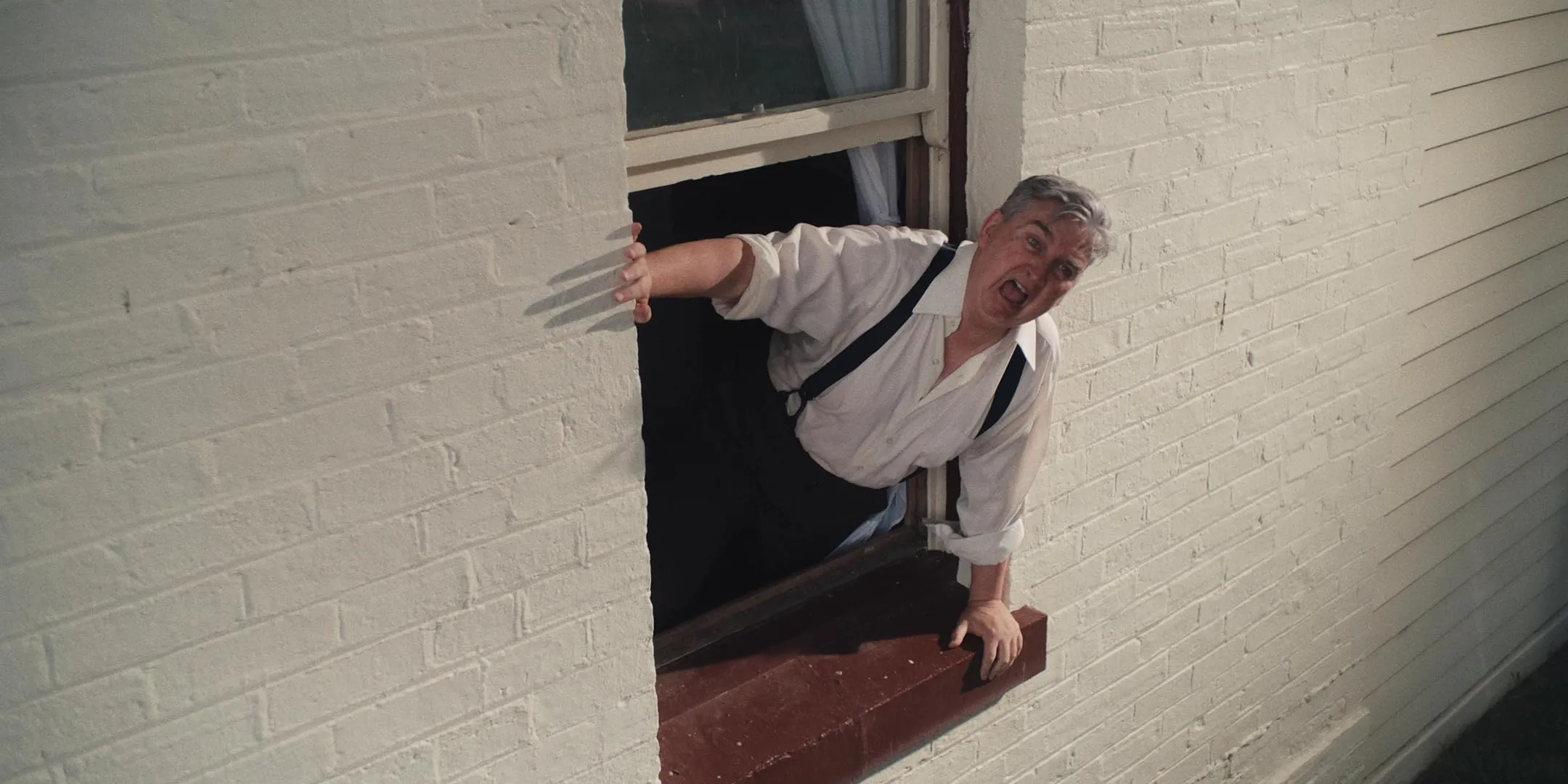
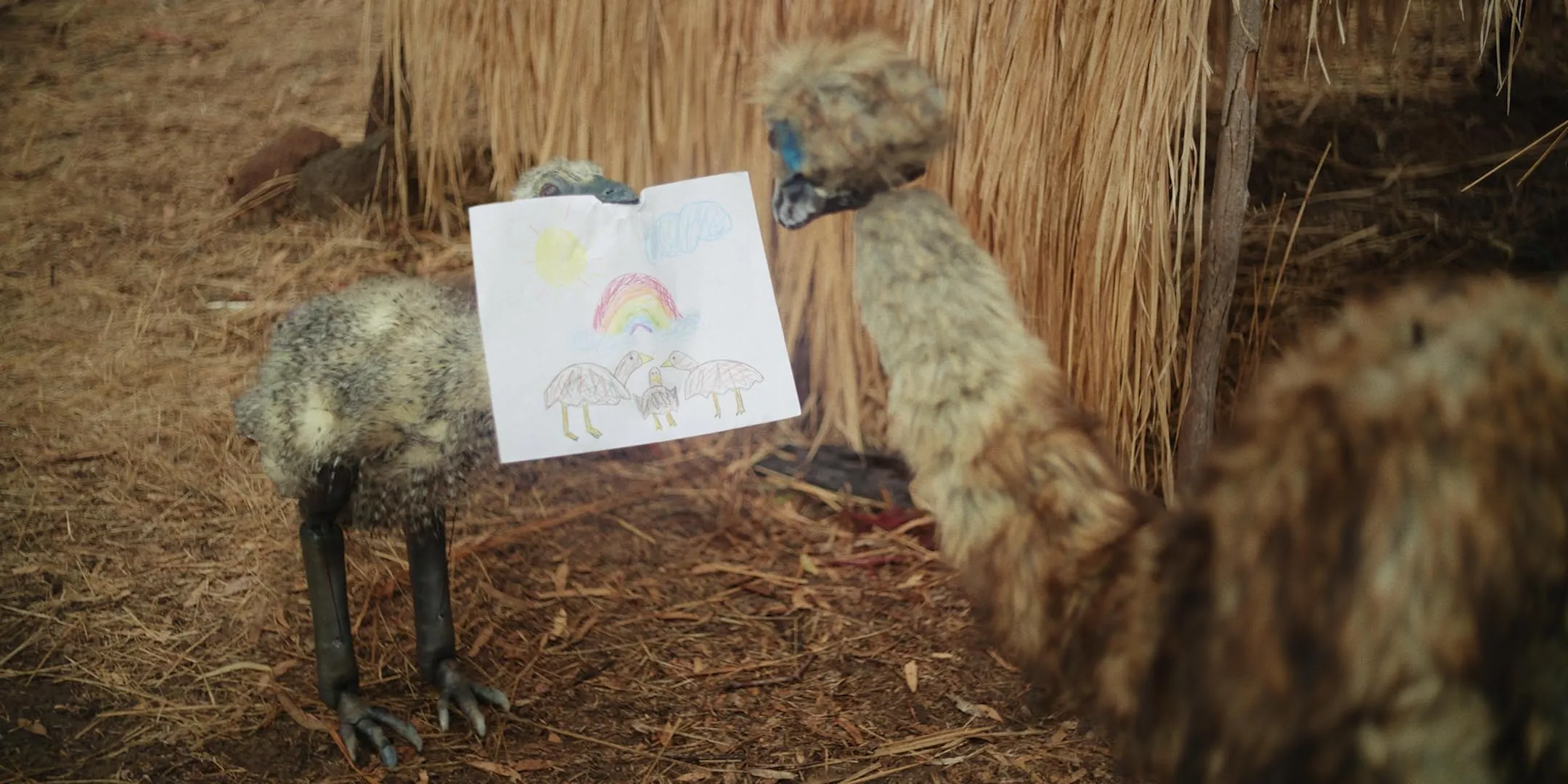
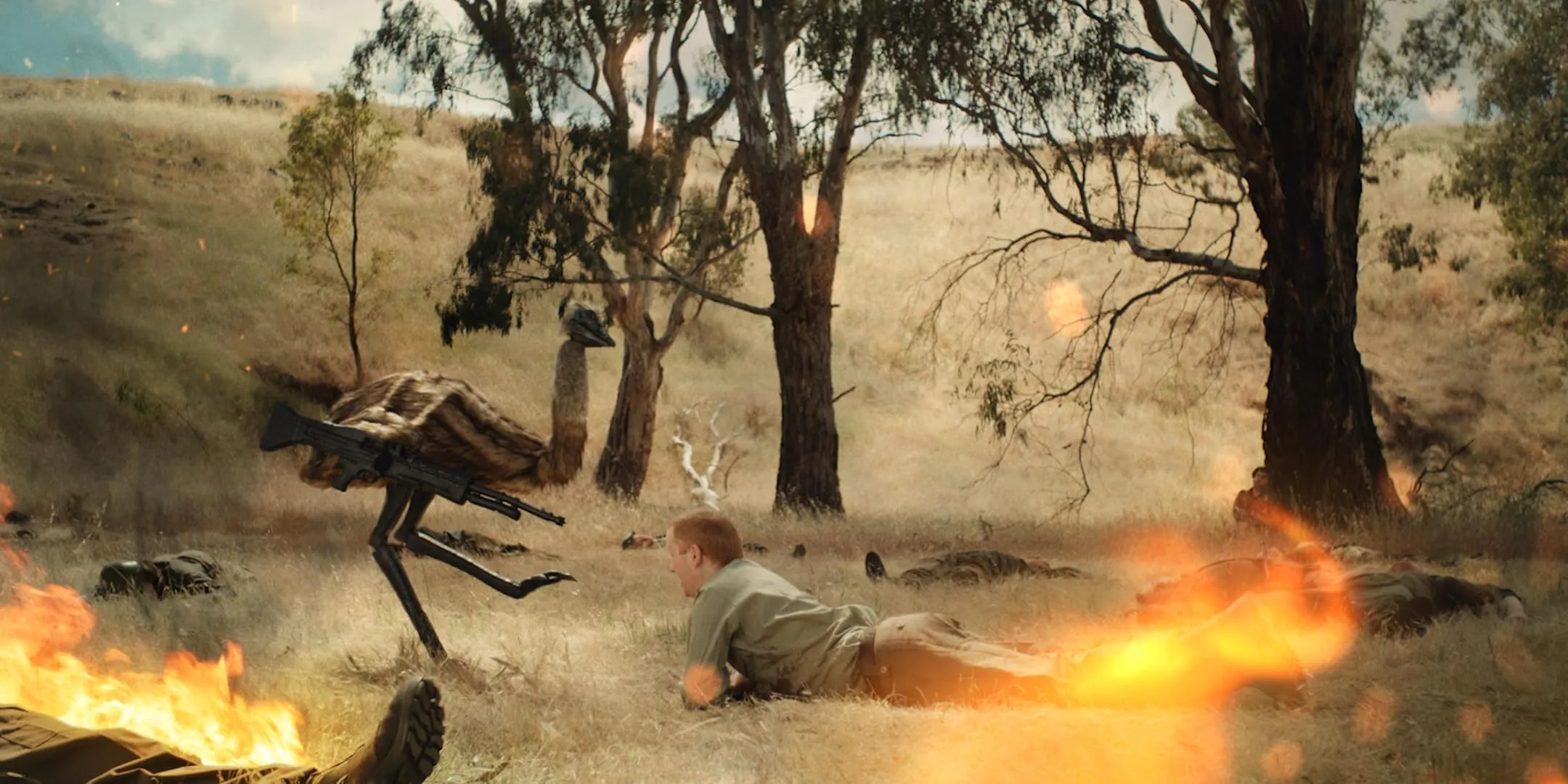
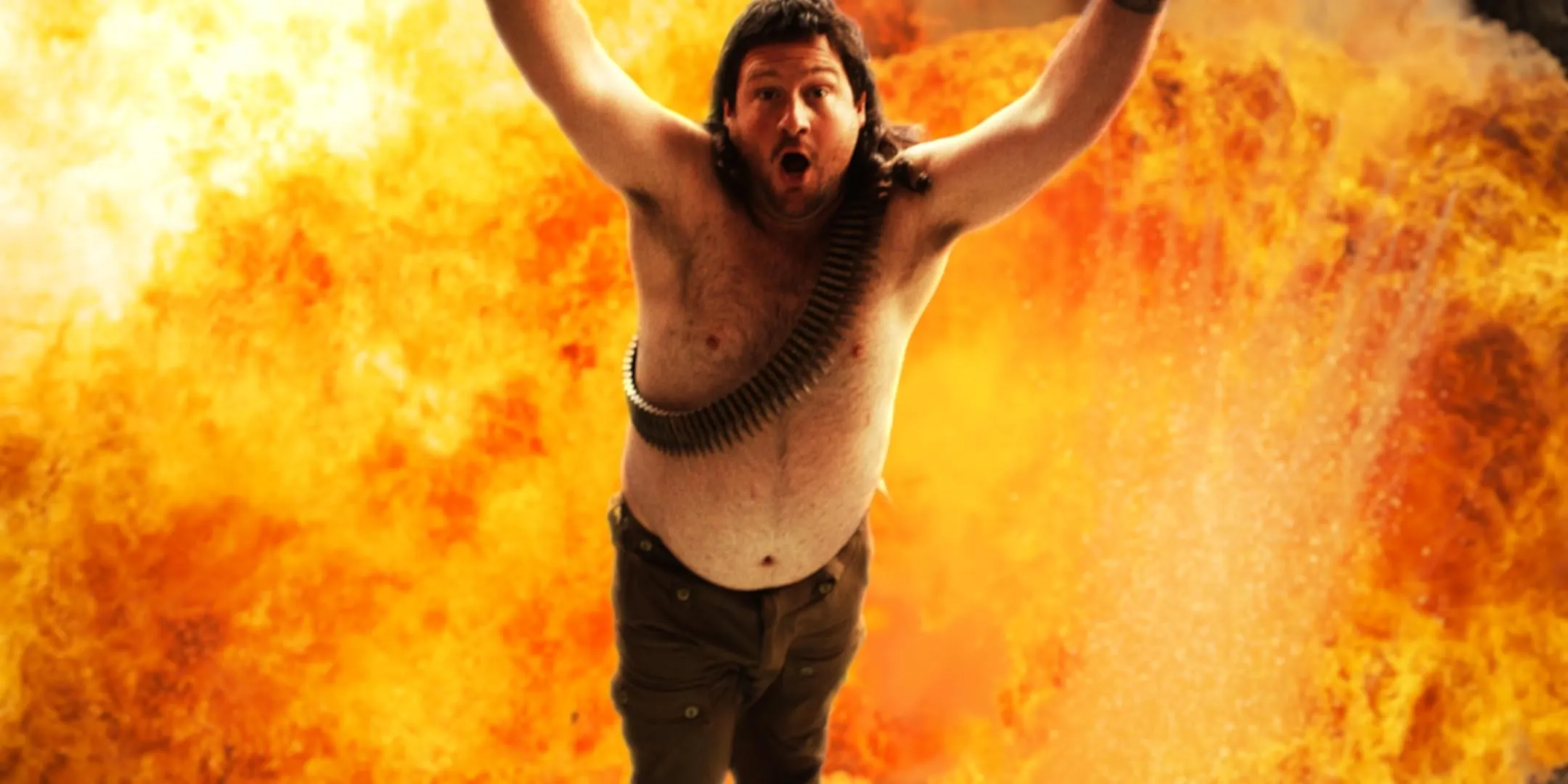


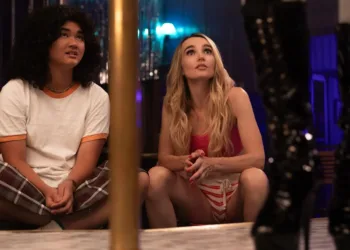





Discussion about this post